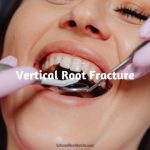As modern medicine continues to improve, tests and studies continue to unveil the connected benefits of various basic vitamins and minerals and how they contribute to the health of parts of the body that we wouldn’t necessarily suspect.
Though everyone knows that healthy doses of calcium in the diet can aid in strong bones and works to reduce the risk of such diseases as osteoporosis, a lesser known fact is that another substance is useful in facilitating absorption of calcium into the body: vitamin D.
Vitamin D, often known by medical professionals through its longer name of serum 25-hydroxyvitamin D, is most often associated with absorption into the body through natural sunlight as well as being fortified into dairy products like milk. But what do we as laymen and women really know about it beyond that? Can most of us even say what importance it serves in the body if we were asked? Vitamin C is an obvious one – it helps keep your immune system strong. But, what have we ever known we needed vitamin D for? Well, as it turns out, vitamin D helps the body to absorb calcium more efficiently, which is why you might often find these days it is fortified into your dairy products and more specifically in your store-bought jugs of milk. So, now we get the relationship. Vitamin D helps the body absorb calcium, and calcium helps to develop and maintain strong bones.
Now, another curveball. Vitamin D can help promote the health of your teeth. After all, your teeth are partially made of calcium (more specifically, calcified tissue called dentine), so if you’re not getting enough calcium into the body (by having vitamin D as well so your body can absorb calcium better in the first place), your teeth are likely going to suffer for it.
Studies have shown that a deficiency of vitamin D present in the body can lead to higher risks of bone density loss in general and – more specifically, in this case – a loss of alveolar bone density. That’s basically the bone density of parts comprising your jawbones (maxilla and mandible). Without getting terribly technical, the alveolar bones effectively hold your teeth into place in your mouth by maintaining the tooth sockets (alveoli) in which your teeth are anchored. Therefore, it’s safe to say that the decay of the alveolar bones could -and very likely would- eventually lead to the toothless simply by virtue of the fact that the alveoli would eventually their anchor point within your mouth. So, even though the teeth themselves may or may not be healthy, the very fact that your jaw bones were deteriorating due in part to a lack of calcium would make all the difference.
A lesser discussed part of the mouth being the gums also seems to benefit from the presence of Vitamin D. While it is still part and parcel to supplying calcium to the body, Vitamin D also plays a part in defending against bacteria in the mouth that could cause deterioration through the gums. Some know it as periodontal disease, while many of you may recognize its more common name: gingivitis. That’s right, inflammation and bleeding of your gum line can actually be an indicator for not only less-than-perfectly-healthy gums but also the slow decay of the alveoli (the dental fibers that actually hold the tooth into the jaw that we discussed earlier). While brushing and flossing are obvious solutions to fighting gingivitis (and most oral health concerns in general), supplying the body with Vitamin D not only more readily fortifies the body with the calcium it is attempting to absorb, but it can also actively combat microbial particles that can infect your gum line by providing more technical term stuff.
Cathelicidin and defensins. That’s what they’re called if you were curious. Vitamin D also reduces the amount of enzymes in your mouth that are commonly associated with periodontal disease (matrix metalloproteinases, or MMPs for short if you aren’t a pro-Scrabble player).
So, what have we learned? Well, apart from reinforcing the old’ brushing and flossing mantra, the importance of Vitamin D as a foundation to oral health can’t seem to be overstressed. It better equips the body with a way to absorb calcium that reinforces bone density and tooth remineralization, and it is also an active agent in staving off bacteria in your mouth that could otherwise cause problems for your gum line. So, drink your fortified milk and make sure to get enough sun if you can. Your teeth will be sure to thank you for it.
About The Author:
Dr. Jay Fensterstock is a New York dentist who has been practicing dentistry for over 40 years. He graduated from New York University’s College of Dentistry and opened Concerned Dental Care which has now expanded to 9 locations with over 10 affiliate locations over the New York City area. When he’s not helping patients of all ages with their oral health he can be found writing informative blogs while sipping on a cup of hot chocolate (yes it’s sugar-free).
Sources:
https://www.vitamindcouncil.org/health-conditions/periodontal-disease/




![[Orthodontic Treatments] How They Improve Your Oral Health? Orthodontic Treatments](https://www.safeandhealthylife.com/wp-content/uploads/2021/10/Orthodontic-Treatments-150x150.jpg)